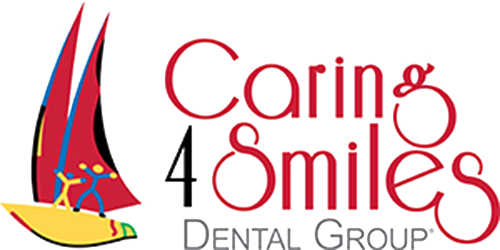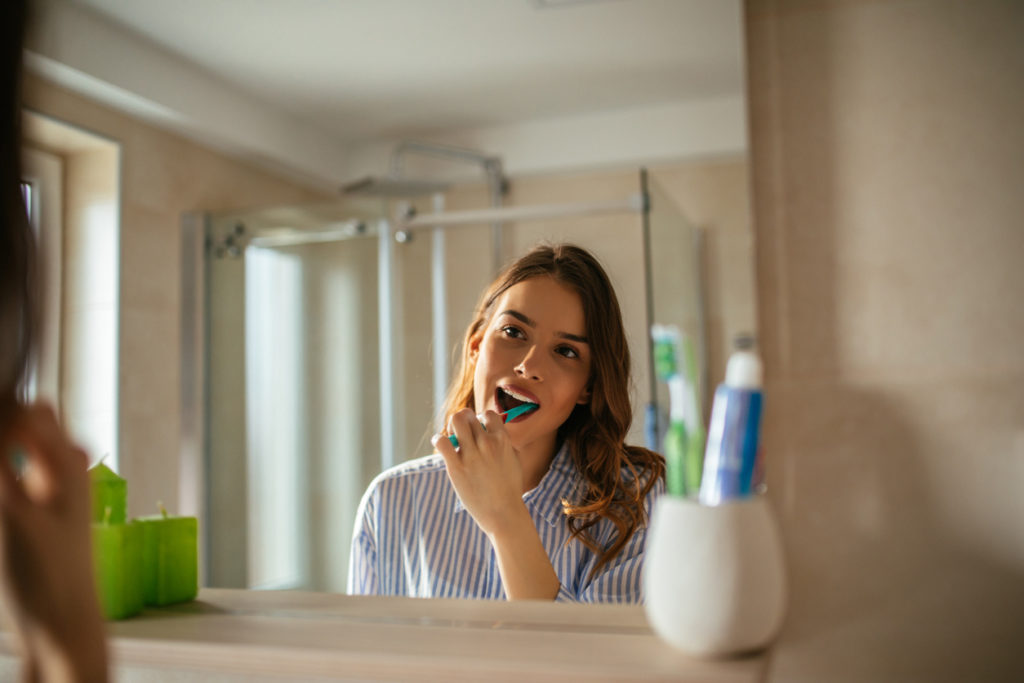Everyone thinks they know how to brush their teeth, but considering the fact that most of us learn to brush when we were toddlers, it’s quite easy to slip into bad habits without even realizing it. Here are five common bad brushing habits, along with tips for how to fix them.
Not Brushing Long Enough
If we had to choose the bad brushing habit that’s most common, this would be the one! Every parent has probably had the experience of watching their child “brush” their teeth by taking a quick swipe across the fronts of each arch, but many adults make the same mistake of not brushing for a sufficient amount of time.
You might know that you’re supposed to brush for two minutes twice a day, and it might feel like you’re hitting that two minute mark, but two minutes can be a lot longer than it seems—unless you’re timing yourself, you’re probably not brushing as long as you need to. Break the habit by using a kitchen timer or the timer on your phone to ensure you’re brushing properly.
Brushing Too Hard
Another common mistake is using too much pressure when brushing. It’s easy to see why so many people do this—your teeth feel clean when you scrub them hard. Unfortunately, all that scrubbing can cause your gums to recede. If you brush for two minutes, you won’t need to brush so hard to see (and feel) results.
Not Brushing Mindfully
Brushing mindfully might sound a bit silly, but many people use brushing as an opportunity for multitasking. Do you brush while picking out your clothes for the day? While texting your mum or reading the news? If so, you’re probably not brushing as well as you should be.
When you brush, focus on what you’re doing. Divide your teeth into quadrants: upper right, upper left, lower right, lower left. Spend 30 seconds brushing each quadrant thoroughly, cleaning the front, back, and chewing surfaces. After you brush, your teeth should feel clean and smooth front to back, top to bottom.
Using the Wrong Toothbrush
In addition to using too much pressure while brushing, many patients use a stiff-bristled toothbrush to scrub away plaque, thinking that they’re doing an excellent job keeping their teeth clean. While it’s true that your teeth might be clean, those stiff-bristled brushes can cause your gums to recede, just like brushing too hard can. Stick with a soft-bristled brush instead.
Not Following Brushing With Flossing
Once your two minutes of brushing are complete, your oral hygiene routine isn’t finished—you still need to floss at least once a day. Flossing is essential for cleaning between the teeth, where your toothbrush can’t reach. When you floss, make sure you clean between all of your teeth (not just the ones that you can see food stuck in!) and floss all the way down to the gum line.
Learn More About Proper Brushing Habits
Do you need a refresher on your brushing technique? Caring 4 Smiles is happy to help! Contact us today at 09 631 5416 to schedule an appointment.

